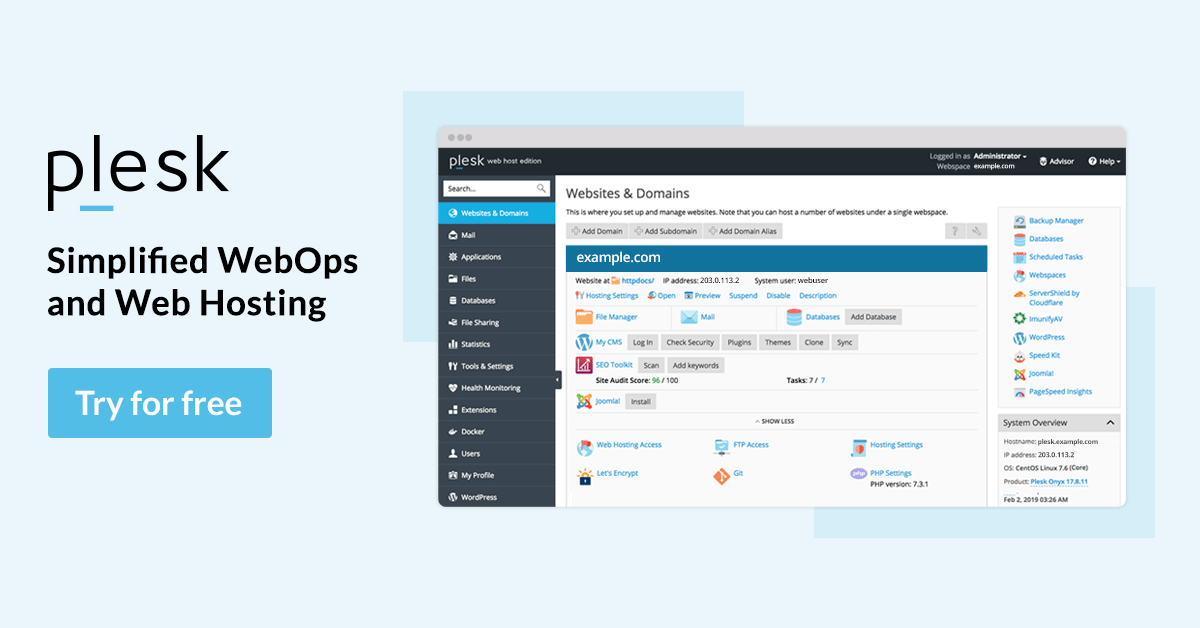Cloud based web hosting – Cloud-based web hosting has revolutionized the way websites are built and managed. Gone are the days of bulky servers and complex infrastructure. Cloud hosting offers a flexible, scalable, and cost-effective solution for businesses and individuals alike, enabling them to build and host websites with ease.
This modern approach to web hosting leverages the power of distributed servers and networks, allowing users to access resources on demand. By utilizing cloud computing, websites can scale seamlessly, handle traffic spikes, and benefit from enhanced security features, all while enjoying the convenience of pay-as-you-go pricing models.
What is Cloud-Based Web Hosting?
Cloud-based web hosting, often referred to as cloud hosting, is a modern approach to hosting websites and applications. Unlike traditional web hosting, which relies on a single physical server, cloud hosting utilizes a network of interconnected servers, known as a cloud, to distribute resources and manage data.
The Fundamental Concept of Cloud Hosting
Cloud hosting leverages the power of multiple servers, enabling websites to be hosted on a virtualized infrastructure. This infrastructure is managed by a third-party provider, who ensures the availability and performance of the servers.
Cloud Hosting vs. Traditional Web Hosting
Cloud hosting offers distinct advantages over traditional web hosting methods, primarily due to its scalability, flexibility, and cost-effectiveness.
Key Differences Between Cloud Hosting and Traditional Web Hosting
- Resource Allocation: Traditional web hosting allocates resources to a single server, while cloud hosting distributes resources across multiple servers, providing greater flexibility and scalability.
- Scalability: Cloud hosting allows for easy scaling of resources based on website traffic and demands, while traditional web hosting requires manual intervention to adjust server capacity.
- Cost-Effectiveness: Cloud hosting typically offers pay-as-you-go pricing models, making it more cost-effective for websites with fluctuating traffic and resource requirements, unlike traditional hosting, which often involves fixed monthly fees.
- Reliability and Availability: Cloud hosting provides higher reliability and availability due to its distributed nature. If one server fails, the website seamlessly shifts to another server, ensuring minimal downtime.
Advantages of Cloud Hosting for Website Owners
Cloud hosting offers several advantages for website owners, making it an attractive option for various types of websites.
Key Benefits of Cloud Hosting
- Enhanced Scalability: Cloud hosting allows websites to scale their resources effortlessly to accommodate increasing traffic and demand, ensuring smooth performance even during peak hours.
- Improved Reliability and Availability: The distributed nature of cloud hosting ensures high availability and reliability, as websites can seamlessly switch to another server in case of a failure, minimizing downtime.
- Cost-Effectiveness: Cloud hosting offers pay-as-you-go pricing models, allowing website owners to pay only for the resources they use, making it a cost-effective solution for websites with fluctuating traffic and resource needs.
- Increased Security: Cloud hosting providers invest heavily in security infrastructure and employ advanced security measures to protect websites and data from cyber threats.
- Simplified Management: Cloud hosting providers handle server maintenance and updates, freeing up website owners to focus on other aspects of their business.
Cloud Hosting Providers and Services: Cloud Based Web Hosting
Cloud hosting has revolutionized the way websites are hosted, offering flexibility, scalability, and cost-effectiveness compared to traditional hosting methods. With a multitude of cloud hosting providers and services available, choosing the right option can be challenging. This section explores prominent cloud hosting providers and delves into the various cloud hosting services available.
Major Cloud Hosting Providers
The cloud hosting landscape is dominated by a few key players, each offering a comprehensive suite of services and infrastructure.
- Amazon Web Services (AWS): AWS is the world’s leading cloud platform, offering a vast array of services, including compute, storage, networking, databases, analytics, and more. Its extensive global infrastructure ensures high availability and low latency.
- Microsoft Azure: Azure is a robust cloud platform from Microsoft, providing a wide range of services for businesses of all sizes. It seamlessly integrates with Microsoft technologies and offers a strong focus on hybrid cloud solutions.
- Google Cloud Platform (GCP): GCP is Google’s cloud platform, known for its innovative services, including machine learning, data analytics, and containerization. It leverages Google’s vast infrastructure and expertise in these areas.
Types of Cloud Hosting Services
Cloud hosting services cater to different needs and budgets, ranging from shared resources to dedicated servers. Understanding the differences between these service types is crucial for selecting the optimal solution.
- Shared Hosting: In shared hosting, multiple websites share the same server resources, making it the most cost-effective option. While affordable, it can lead to performance issues if other websites on the server experience high traffic.
- Virtual Private Server (VPS) Hosting: VPS hosting provides a virtualized server environment dedicated to a single user, offering more control and resources compared to shared hosting. This option is suitable for websites with moderate traffic and resource requirements.
- Dedicated Server Hosting: Dedicated server hosting provides an entire physical server dedicated solely to one website or application. This offers the highest level of performance, security, and control, making it ideal for high-traffic websites and demanding applications.
Features and Benefits of Cloud Hosting Services, Cloud based web hosting
Cloud hosting services offer numerous features and benefits that traditional hosting methods lack.
- Scalability: Cloud hosting allows websites to scale up or down resources dynamically based on traffic fluctuations. This ensures optimal performance and prevents downtime even during peak traffic periods.
- Flexibility: Cloud hosting offers flexibility in terms of operating systems, software, and configurations. Users can choose the best environment for their specific needs.
- Cost-Effectiveness: Cloud hosting often provides a pay-as-you-go pricing model, allowing users to pay only for the resources they use. This can be significantly more cost-effective than traditional hosting methods.
- High Availability: Cloud hosting providers offer redundant infrastructure and disaster recovery mechanisms, ensuring high availability and minimal downtime.
- Security: Cloud hosting providers implement robust security measures to protect websites and data from threats. This includes firewalls, intrusion detection systems, and regular security updates.
Benefits of Cloud-Based Web Hosting
Cloud-based web hosting offers a range of advantages that can significantly enhance website performance, scalability, and overall efficiency. It provides a flexible and cost-effective solution for businesses of all sizes, from startups to large enterprises.
Scalability and Flexibility
Cloud hosting provides the ability to scale resources up or down based on demand. This means you can easily adjust your website’s capacity to handle traffic spikes or seasonal fluctuations without worrying about hardware limitations. This flexibility allows you to:
- Adapt to Changing Needs: As your website grows, you can seamlessly increase resources like CPU, memory, and storage without needing to invest in new hardware.
- Optimize Performance: By scaling resources dynamically, you can ensure optimal performance even during peak traffic hours.
- Reduce Costs: You only pay for the resources you use, making cloud hosting a cost-effective option for businesses with fluctuating website traffic.
High Availability and Reliability
Cloud hosting ensures high availability and reliability by distributing your website across multiple servers. This redundancy eliminates single points of failure, ensuring your website remains accessible even if one server experiences an outage. This is achieved through:
- Redundant Servers: Your website data and applications are replicated across multiple servers, ensuring continuous availability.
- Load Balancing: Traffic is distributed evenly across available servers, preventing any single server from becoming overloaded.
- Automatic Failover: In case of server failure, the system automatically switches to a backup server, minimizing downtime.
Cost-Effectiveness and Pay-As-You-Go Models
Cloud hosting is often more cost-effective than traditional hosting options. You only pay for the resources you use, eliminating the need for upfront investments in hardware and infrastructure. This pay-as-you-go model allows you to:
- Reduce Capital Expenditures: You don’t need to invest in expensive servers and equipment, freeing up capital for other business needs.
- Optimize Spending: You only pay for the resources you consume, ensuring efficient allocation of your budget.
- Scale Costs: You can easily adjust your spending based on your website’s needs, allowing for flexibility and cost optimization.
Security Features and Disaster Recovery
Cloud hosting providers invest heavily in security and disaster recovery measures to protect your website and data. They offer a wide range of security features, including:
- Data Encryption: Sensitive data is encrypted both in transit and at rest, safeguarding it from unauthorized access.
- Firewall Protection: Firewalls prevent unauthorized access to your website and applications, protecting them from malicious attacks.
- Regular Security Updates: Cloud providers constantly update their systems to address emerging security threats.
- Disaster Recovery Plans: Cloud platforms have robust disaster recovery plans in place to ensure quick recovery in case of unexpected events.
Setting Up and Managing Cloud Hosting
Setting up a website on a cloud hosting platform is a straightforward process that involves choosing a provider, configuring your account, and setting up your website files. Managing your cloud hosting account is equally intuitive, with user-friendly dashboards and tools that allow you to monitor performance, manage resources, and make necessary adjustments.
Setting Up a Website on a Cloud Hosting Platform
Setting up a website on a cloud hosting platform involves several steps, including choosing a provider, creating an account, configuring your domain name, and uploading your website files.
- Choose a Cloud Hosting Provider: Select a reputable cloud hosting provider based on your website’s needs, budget, and technical requirements. Consider factors such as scalability, security, reliability, and customer support. Popular providers include Amazon Web Services (AWS), Google Cloud Platform (GCP), and Microsoft Azure.
- Create an Account: Once you’ve chosen a provider, create an account by providing the required information, such as your email address, password, and payment details.
- Configure Your Domain Name: If you already have a domain name, you’ll need to configure it to point to your cloud hosting server. This process typically involves updating your DNS records with your domain registrar.
- Upload Your Website Files: You can upload your website files using a file transfer protocol (FTP) client or a web-based interface provided by your cloud hosting provider.
Managing Cloud Hosting Accounts
Cloud hosting providers offer user-friendly dashboards and tools that allow you to manage your account and website effectively.
- Control Panel: Most cloud hosting providers offer a web-based control panel that provides access to various management features, such as resource monitoring, security settings, and website administration tools.
- Resource Management: Cloud hosting platforms allow you to scale your resources on demand, adjusting CPU, memory, and storage as needed to meet your website’s performance requirements.
- Security Features: Cloud hosting providers offer robust security features, including firewalls, intrusion detection systems, and data encryption, to protect your website from threats.
- Monitoring and Analytics: Cloud hosting platforms provide tools to monitor your website’s performance, track traffic, and identify potential issues.
Configuring Domain Names and Email Services
Cloud hosting platforms provide tools to configure domain names and set up email services.
- Domain Name Configuration: You can configure your domain name to point to your cloud hosting server by updating your DNS records with your domain registrar. Most cloud hosting providers provide detailed instructions and support for this process.
- Email Service Setup: Cloud hosting providers offer email services that allow you to create and manage email accounts for your domain. You can configure email forwarding, create custom email addresses, and access webmail interfaces.
Cloud Hosting for Different Website Types

Cloud hosting is incredibly versatile and can cater to a wide range of website types, each with its own unique needs. Whether you’re launching a simple blog, a complex e-commerce store, or a high-traffic portfolio website, cloud hosting offers a scalable and reliable solution.
Cloud Hosting for Blogs
Cloud hosting is an excellent choice for blogs due to its affordability and scalability. Bloggers can easily start with a basic plan and upgrade as their traffic grows. The flexibility of cloud hosting allows bloggers to handle traffic spikes during popular posts without experiencing performance issues.
Cloud Hosting for E-commerce Websites
E-commerce websites require robust infrastructure to handle large amounts of data, transactions, and user traffic. Cloud hosting provides the necessary resources and scalability to support high-volume online stores. Cloud platforms offer features like load balancing, content delivery networks (CDNs), and security measures to ensure smooth operations and protect sensitive customer data.
“Cloud hosting has been a game-changer for our e-commerce business. We can now easily scale our infrastructure to meet peak demand during holiday seasons, ensuring a seamless shopping experience for our customers.” – Sarah, Founder of [E-commerce Website Name]
Cloud Hosting for Portfolios
For creative professionals, portfolios are essential for showcasing their work. Cloud hosting provides a secure and reliable platform to host image-heavy websites, ensuring fast loading times and a positive user experience. The scalability of cloud hosting allows portfolio websites to grow with their creators, accommodating increased traffic as their reputation and client base expands.
“Since moving to a cloud hosting platform, my portfolio website has experienced a significant improvement in performance. Images load faster, and the website is always available, even during peak traffic hours.” – John, Graphic Designer
Cloud Hosting for Developers
Cloud hosting offers a range of advantages for developers, streamlining development workflows and enhancing productivity. It provides a flexible and scalable environment for building, testing, and deploying applications, making it an ideal choice for modern software development practices.
Integration with Development Tools and Frameworks
Cloud platforms seamlessly integrate with popular development tools and frameworks, simplifying the development process. These integrations enable developers to leverage existing tools and workflows within the cloud environment.
- Version Control Systems: Cloud hosting platforms integrate with version control systems like Git, allowing developers to manage code changes, track revisions, and collaborate effectively.
- Continuous Integration and Continuous Delivery (CI/CD): Cloud platforms support CI/CD pipelines, automating the build, test, and deployment processes. This streamlines the software release cycle and ensures consistent quality.
- Containers and Microservices: Cloud platforms provide containerization technologies like Docker and Kubernetes, enabling developers to package applications and dependencies into portable containers. This promotes modularity and simplifies deployment.
- Integrated Development Environments (IDEs): Cloud-based IDEs offer a comprehensive development environment accessible from anywhere, providing code editing, debugging, and deployment capabilities within the cloud platform.
Cloud-Based Development Environments and Services
Cloud providers offer a wide range of development environments and services tailored to the needs of developers. These services simplify the setup and management of development infrastructure, allowing developers to focus on building applications.
- Serverless Computing: Serverless platforms like AWS Lambda and Azure Functions allow developers to run code without managing servers. This provides a pay-as-you-go model, reducing infrastructure costs and scaling automatically.
- Cloud-Based Databases: Cloud providers offer managed database services, such as Amazon RDS and Google Cloud SQL, simplifying database management and scaling. These services provide high availability, performance, and security.
- Cloud-Based Storage: Cloud storage services like Amazon S3 and Google Cloud Storage offer scalable and durable storage for application data, code, and assets. This enables developers to store and access data easily.
- Cloud-Based Monitoring and Logging: Cloud platforms provide monitoring and logging services, enabling developers to track application performance, identify issues, and gain insights into user behavior.
Cloud Hosting Security Considerations
Cloud hosting offers numerous benefits, but it also introduces new security challenges. It’s crucial to understand the potential risks and the security measures in place to protect your website and data.
Common Security Threats
Cloud hosting, like any other online environment, is susceptible to various security threats. Here’s a breakdown of some common risks:
- Data Breaches: Unauthorized access to sensitive data, such as customer information, financial records, and intellectual property, is a major concern. Hackers may exploit vulnerabilities in the cloud infrastructure or target weak security practices within your website.
- Denial-of-Service (DoS) Attacks: These attacks aim to overwhelm a website with traffic, making it unavailable to legitimate users. Cloud providers often have mechanisms to mitigate DoS attacks, but your website’s resilience can still be impacted.
- Malware Infections: Malicious software can infiltrate websites hosted on the cloud, potentially stealing data, redirecting traffic, or compromising website functionality. This can happen through vulnerabilities in web applications or through phishing attacks.
- Misconfigurations: Improperly configured cloud services, firewalls, or access controls can create security loopholes that attackers can exploit. Regular security audits and best practices are essential to prevent misconfigurations.
Security Measures Implemented by Cloud Providers
Cloud providers invest heavily in security to protect their infrastructure and the data hosted on their platforms. They typically implement a range of measures, including:
- Data Encryption: Sensitive data is encrypted both at rest (while stored) and in transit (during transmission). This makes it difficult for unauthorized individuals to access or decrypt the data.
- Firewall Protection: Firewalls act as a barrier between your website and the outside world, blocking unauthorized access attempts and suspicious traffic. Cloud providers often offer robust firewall configurations and management tools.
- Intrusion Detection and Prevention Systems (IDS/IPS): These systems monitor network traffic for suspicious activities and take actions to prevent or mitigate potential threats. They can detect anomalies and block malicious attempts to access your website.
- Regular Security Audits: Cloud providers conduct regular security audits to identify and address vulnerabilities in their infrastructure. They also work to ensure compliance with industry standards and best practices.
Best Practices for Securing Websites on Cloud Platforms
While cloud providers offer robust security measures, it’s still important to implement best practices to protect your website and data:
- Strong Passwords and Multi-Factor Authentication (MFA): Use strong passwords for all accounts associated with your website and enable MFA for enhanced security. MFA requires an additional verification step, such as a code sent to your phone, to access accounts.
- Regular Security Updates: Keep your website’s software, plugins, and themes updated to patch security vulnerabilities. Cloud providers often provide automatic updates, but it’s still important to monitor and manually update when necessary.
- Secure Website Development Practices: Employ secure coding practices, such as input validation and sanitization, to prevent common vulnerabilities like SQL injection and cross-site scripting (XSS) attacks.
- Regular Security Scans and Monitoring: Use security scanners to identify vulnerabilities and monitor your website for suspicious activities. Cloud providers often offer security scanning tools, or you can use third-party services.
- Data Backup and Disaster Recovery: Regularly back up your website data and have a disaster recovery plan in place. This helps you recover from data loss or website outages due to security incidents or other unforeseen events.
Cloud Hosting Cost and Pricing

Understanding the cost of cloud hosting is crucial for choosing the right plan for your needs and budget. Cloud hosting providers employ various pricing models, and the cost can vary depending on the services included, resources allocated, and the specific provider.
Pricing Models
Cloud hosting providers use different pricing models to accommodate various user needs and budgets. The most common models include:
- Pay-as-you-go: This model charges you only for the resources you use, such as CPU, memory, and storage. It is ideal for websites with fluctuating traffic or those starting out with limited resources. You pay only for what you consume, offering flexibility and cost optimization.
- Subscription-based: This model involves a fixed monthly or annual fee for a predetermined set of resources. It provides predictable costs and is suitable for websites with consistent traffic and resource requirements. You pay a fixed amount for a specific package, offering stability and predictability.
- Usage-based: This model combines elements of pay-as-you-go and subscription-based models. It involves a base subscription fee for a core set of resources and additional charges for exceeding the allocated limits. This model provides flexibility for handling traffic spikes while ensuring a predictable base cost. It offers a balance between flexibility and cost control.
Cost Comparison of Cloud Hosting Services
The cost of cloud hosting varies depending on the type of service you choose. Here’s a comparison of common cloud hosting services:
- Shared Hosting: This is the most affordable option, where multiple websites share the same server resources. Costs typically range from a few dollars per month to around $10-$20 per month, depending on the provider and features included. Shared hosting offers a cost-effective solution for basic websites with low traffic and resource demands.
- VPS Hosting: This offers more resources and control than shared hosting. You get a dedicated portion of a server’s resources, providing better performance and isolation. Prices typically range from $10-$50 per month, depending on the provider, resources allocated, and features included. VPS hosting is suitable for websites with moderate traffic and resource requirements, offering a balance between cost and performance.
- Dedicated Hosting: This provides the highest level of performance and control, with an entire server dedicated to your website. Costs can range from $50-$500 or more per month, depending on the server specifications and features included. Dedicated hosting is ideal for high-traffic websites, resource-intensive applications, or those requiring maximum security and control. It offers the highest performance and security, but comes at a premium price.
Tips for Optimizing Cloud Hosting Costs
You can optimize your cloud hosting costs by following these tips:
- Choose the Right Plan: Carefully evaluate your website’s needs and traffic patterns to select the appropriate cloud hosting plan. Opting for a plan that provides sufficient resources without overspending is essential. This involves analyzing your website’s traffic, resource consumption, and future growth potential to choose a plan that aligns with your needs.
- Monitor Resource Usage: Regularly monitor your cloud hosting resources, including CPU, memory, and storage. Identify areas where you can optimize usage and reduce unnecessary expenses. This involves tracking resource consumption patterns, identifying bottlenecks, and adjusting resource allocation as needed to optimize performance and minimize costs.
- Scale Resources as Needed: Instead of paying for resources you don’t use, scale your cloud hosting resources up or down based on your website’s traffic fluctuations. This allows you to pay only for the resources you need, minimizing unnecessary expenses. Dynamic scaling enables you to adjust resources in real-time, adapting to changing traffic demands and ensuring optimal performance while controlling costs.
- Leverage Free Resources: Explore free cloud hosting options, such as AWS Free Tier or Google Cloud Platform’s free trial. These can help you test your website and applications without incurring significant costs. This allows you to experiment with different configurations, test your website’s performance, and explore the cloud hosting environment without financial commitment.
The Future of Cloud-Based Web Hosting
The cloud hosting landscape is constantly evolving, driven by advancements in technology and the ever-growing demand for scalable, reliable, and cost-effective web hosting solutions. As we look ahead, several emerging trends and technologies are poised to shape the future of cloud hosting, impacting how websites are built, hosted, and accessed.
Emerging Trends and Technologies
The future of cloud hosting is characterized by several key trends and technologies that are transforming the way websites are built, hosted, and accessed.
- Edge Computing: Edge computing brings processing power closer to users, reducing latency and improving performance. This approach is particularly beneficial for applications requiring real-time data processing, such as streaming services, gaming, and IoT devices. Cloud hosting providers are increasingly incorporating edge computing into their offerings, enabling faster content delivery and improved user experiences.
- Serverless Computing: Serverless computing allows developers to run code without managing servers, simplifying development and reducing operational overhead. Cloud hosting providers are offering serverless platforms that enable developers to focus on building applications without worrying about infrastructure management.
- Containerization: Containerization technology, such as Docker, allows applications to be packaged with all their dependencies, ensuring consistent execution across different environments. This approach simplifies deployment and scaling, making it easier for developers to manage applications in cloud environments.
- Microservices Architecture: Microservices architecture breaks down applications into smaller, independent services that can be developed, deployed, and scaled independently. This approach enhances flexibility, scalability, and fault tolerance, making it ideal for cloud-based applications.
- Artificial Intelligence (AI) and Machine Learning (ML): AI and ML are increasingly being integrated into cloud hosting platforms to automate tasks, optimize resource allocation, and improve security. For example, AI-powered systems can detect and prevent security threats, while ML algorithms can predict resource needs and optimize performance.
Case Studies and Real-World Examples
Cloud hosting has become a ubiquitous solution for businesses of all sizes, and its impact is evident in numerous success stories. Examining real-world examples helps illustrate the tangible benefits and challenges associated with adopting cloud hosting. These case studies provide valuable insights into how companies have leveraged cloud infrastructure to achieve their goals, highlighting the advantages and potential drawbacks.
Success Stories of Cloud Hosting Adoption
The success of cloud hosting is demonstrated by the widespread adoption across various industries. Here are a few prominent examples:
- Netflix: The streaming giant transitioned to a cloud-based infrastructure powered by Amazon Web Services (AWS) to handle the massive traffic and data demands of its global user base. This move enabled Netflix to scale its platform seamlessly, ensuring uninterrupted streaming experiences for millions of users worldwide.
- Spotify: Spotify, the popular music streaming service, relies heavily on cloud hosting to manage its vast library of songs and deliver high-quality audio streams to millions of subscribers. The scalability and flexibility of cloud infrastructure allow Spotify to handle peak demand periods, such as holiday seasons, without compromising performance.
- Airbnb: The online marketplace for lodging relies on cloud hosting to manage its global network of hosts and guests. The platform’s dynamic nature, with fluctuating booking demands, requires a flexible and scalable infrastructure, which cloud hosting provides.
Case Studies Demonstrating Cloud Hosting Benefits
Specific case studies illustrate the benefits of cloud hosting for different business needs:
- E-commerce: A growing e-commerce business faced challenges with its on-premises server infrastructure, struggling to handle peak traffic during promotional periods. By migrating to cloud hosting, the company experienced significant improvements in website performance and scalability, leading to increased sales and customer satisfaction.
- Healthcare: A healthcare provider adopted cloud hosting to securely store and manage patient data, adhering to strict regulatory compliance requirements. The cloud provider’s robust security features and data encryption capabilities ensured patient data privacy and confidentiality, while also enabling efficient access for authorized personnel.
- Software Development: A software development company migrated its development and testing environments to the cloud, enabling faster deployment cycles and improved collaboration among developers. The cloud-based infrastructure allowed for flexible scaling of resources based on project needs, reducing costs and improving overall efficiency.
Challenges and Lessons Learned from Implementing Cloud Hosting Solutions
While cloud hosting offers numerous advantages, companies may encounter challenges during implementation:
- Security: Cloud security is paramount, and companies must carefully assess the security measures provided by their chosen cloud provider. Implementing strong access controls, data encryption, and regular security audits is essential to protect sensitive data.
- Cost Management: Cloud hosting costs can vary significantly based on resource usage and pricing models. Companies need to carefully plan their cloud deployments, optimize resource allocation, and monitor costs regularly to avoid unexpected expenses.
- Vendor Lock-in: Choosing a specific cloud provider can lead to vendor lock-in, making it challenging to switch providers in the future. Companies should consider the long-term implications of their cloud hosting choices and explore options for portability.
Conclusion
In conclusion, cloud-based web hosting has emerged as a powerful and indispensable solution for businesses and individuals alike. Its flexibility, scalability, and cost-effectiveness have made it the preferred choice for a wide range of website needs.
The advantages of cloud hosting are undeniable, including enhanced performance, improved security, and streamlined management. The ability to scale resources on demand and pay only for what you use offers significant cost savings.
Key Takeaways
The key takeaways from this article highlight the transformative impact of cloud hosting on the digital landscape. These include:
* Scalability: Cloud hosting provides the flexibility to scale resources up or down as needed, ensuring optimal performance for your website regardless of traffic fluctuations.
* Cost-Effectiveness: Pay-as-you-go pricing models and resource optimization capabilities make cloud hosting a cost-effective solution compared to traditional hosting.
* Security: Cloud providers invest heavily in security infrastructure and offer advanced features to protect your website from threats.
* Reliability: Cloud hosting ensures high uptime and availability, minimizing downtime and ensuring a seamless user experience.
Exploring Cloud Hosting Options
Given the numerous benefits of cloud hosting, it is strongly recommended to explore cloud hosting options for your website needs. Consider factors such as your budget, website traffic, and specific requirements when choosing a provider.
The cloud hosting landscape is constantly evolving, with new providers and services emerging regularly. Research different options, compare features, and select a provider that aligns with your specific needs.
Outcome Summary
In conclusion, cloud-based web hosting has become the cornerstone of modern website development. Its flexibility, scalability, security, and cost-effectiveness make it an ideal solution for a wide range of websites, from small blogs to large e-commerce platforms. As technology continues to evolve, cloud hosting is poised to play an even more significant role in shaping the future of the web.
Cloud-based web hosting offers scalability and flexibility, allowing you to easily adjust your resources as your website grows. This can be particularly helpful when you need to convert files for different platforms or audiences. If you’re looking for a reliable and efficient way to convert files, you can check out online convert for a wide range of conversion options.
Once your files are converted, you can seamlessly integrate them into your cloud-hosted website, ensuring a smooth user experience.




